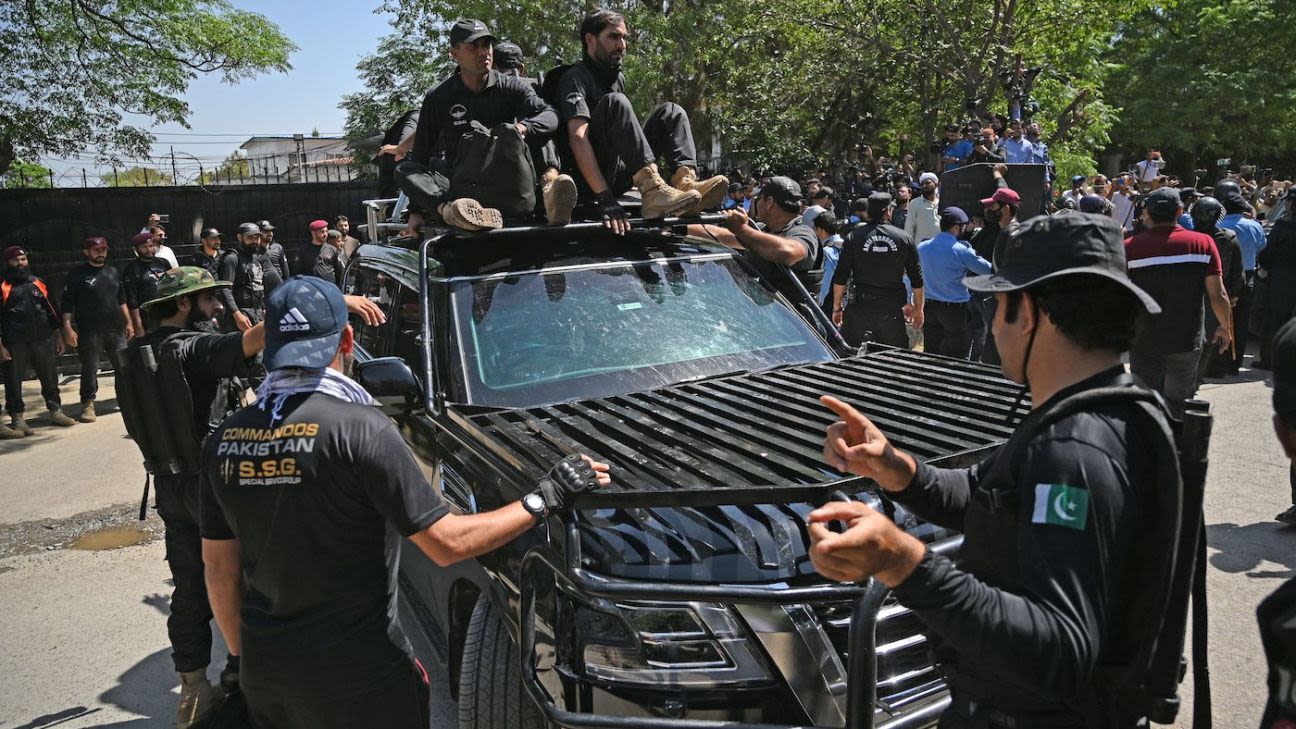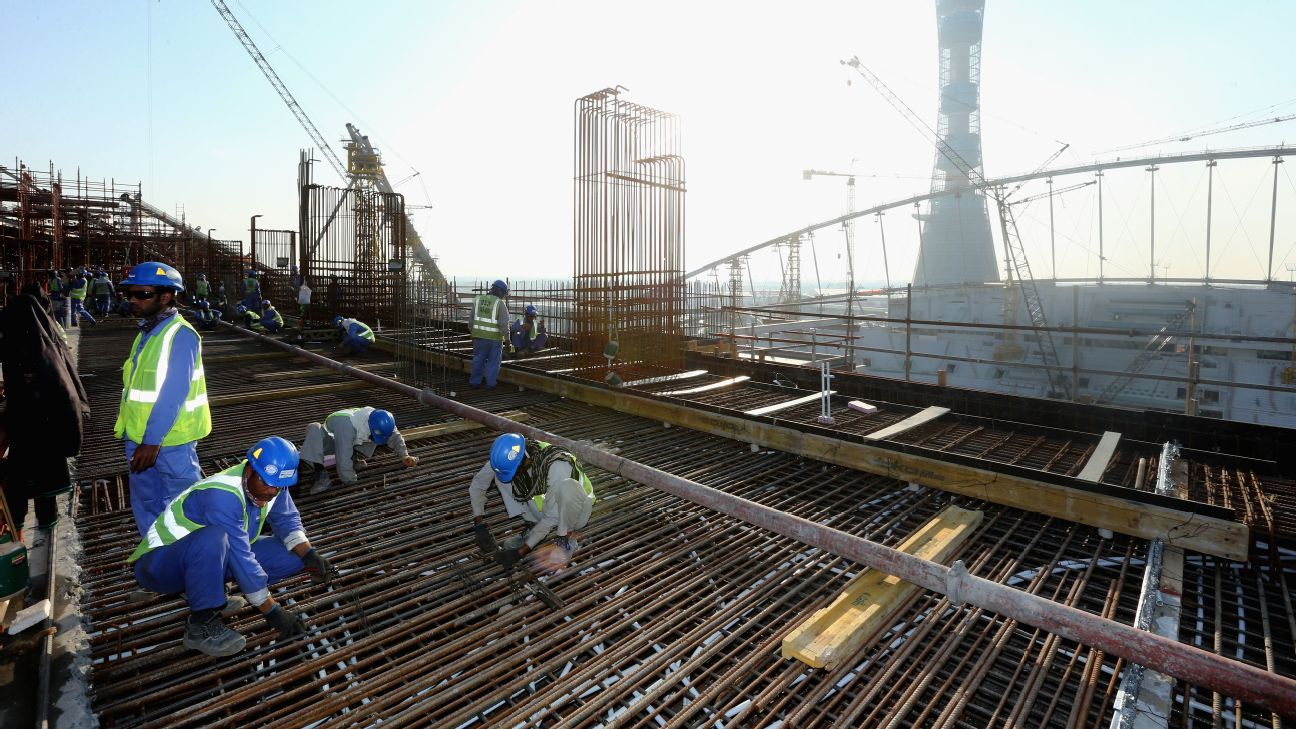
The arrest warrant, seen by ESPNcricinfo states that Imran has been "accused of commission of the offense of corruption and corrupt practices" under a section of the National Accountability Ordinance.
At approximately 2:15pm local time, Imran was arrested by, according to local media, the Pakistan Rangers, a paramilitary federal law enforcement corps in Pakistan. He was handed over to the National Accountability Bureau (NAB) for further investigation. Section 144, a colonial-era law that prohibits large gatherings, has also been imposed in Pakistan's capital.
Islamabad Police released a statement from their Inspector General on Twitter saying Imran had been arrested in the Al Qadir University case, an institution he founded as prime minister in 2019 and where he remains chairman. The allegations centre around the alleged involvement of the former prime minister and his wife in the university being donated the land it stands on by the influential Pakistani businessman and real estate giant Malik Riaz. The UK's National Crime Agency seized assets worth £190m from Riaz in December 2019 and returned them to Pakistan and it is alleged links between the land allotted for the university and what the Pakistan government did with those funds that is unclear but has been the subject of a government investigative committee.
The current federal government in Pakistan, which replaced Imran's government in April 2022 after a vote of no confidence, has often called for his arrest, as have several courts over the past year. There were two separate concerted attempts to arrest him from his residence in March, where police were thwarted by huge numbers of supporters gathered outside his residence to help him resist arrest. Several senior figures of Imran's PTI party (Pakistan's Movement for Justice) have been arrested over the last year, on charges the party says are spurious. They have all been subsequently released.
Pakistan's Supreme Court had ordered elections in Punjab, the country's largest province, to be held on May 14, a few weeks after the constitutional mandate for the caretaker government, set up in the province in January, expired. The ruling party had rejected calls for those elections to be held in defiance of that order.
Several polls have shown Imran holding a clear lead as the most popular politician in the country, and he has accused the government of thwarting Pakistani citizens' democratic rights by refusing to hold elections.
"The government and its backers are petrified of elections because so far in the last eight months, out of the 37 by elections, my party has won 30 out of them," Imran told Al Jazeera in March.
"They want to either arrest or disqualify me because they are scared [of the fact] that my party is one of the most popular in Pakistan's history," he said then, as attempts to arrest him from his residence in Lahore were underway.















 Phone: (800) 737. 6040
Phone: (800) 737. 6040 Fax: (800) 825 5558
Fax: (800) 825 5558 Website:
Website:  Email:
Email: 






